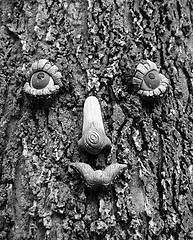 We’ve all heard those impossible interview questions:
We’ve all heard those impossible interview questions:
- What color M&M would you be?
- Describe yourself as a car.
- What kind of tree would you be and why?
Interview questions don’t always seem to have anything to do with the job we want or the skills we would apply to do the job. Then, why do interviewers ask them?
There is an old practice of the “Stress Interview” or “Pressure Interview” that is aimed at making a candidate uncomfortable and seeing how they deal with it. This strategy is still used by some companies.
Some interviewers think they can get a better read on a candidate by surprising them with a nonsensical question and interpreting how they answer it. (Don’t hire anyone who answers palm tree because they’ll never stay in this climate. Anyone who answers oak is strong and decisive.)
Most of all, regardless of the questions they ask, interviewers are trying to figure out whether you will fit in the department.
Unfortunately, many of them ask questions that won’t necessarily give them that answer, so you have to figure out how to show them who you are while answering questions about M&Ms and trees.
Here are the major categories of information interviewers want to know:
- Accountability: Can they rely on you? Do you do what you say you will do?
- Integrity: Are you who you say you are? Can you be trusted with company information? Did you lie on your resume? How will you treat others?
- Expertise: Can you do the job? Can you solve the problems that show up in this type of job?
- Communication: Can you relate to others and communicate information effectively while in an uncomfortable situation such as an interview?
- Adaptability: Can you be counted on for some flexibility when things don’t go quite as expected?
- Motivation: Do you want to be here? Do you like this type of work? What are you going to do AFTER you land the job to make sure you stay up to date on your craft?
Your job as the candidate is to illustrate these six categories of information with examples from your recent work history. The easiest interviews in which to do this are “behavioral interviews” consisting of questions such as “Tell me about a time that you demonstrated accountability” or “Tell me about a time you solved a problem.”
If you’ve prepared and rehearsed your story, this is your time to shine.
But what if, instead, you are asked what kind of tree you are?
Without rolling your eyes, tell them. Start out by describing yourself and then decide what kind of tree that might be:
“I tend to be analytical and creative at the same time. I’m always on time, and I appreciate others who are, too. You can count on me 110%. If I say I’m going to do something, it will be done and done right. I think that sounds like a red maple. It’s a hardwood, very sturdy and reliable, yet it has a flair of the creative in the fall when the leaves turn.”
Let them see the process you choose and how you work through it. If you tend toward introversion, this may be more difficult for you because you tend to process internally. You may need to ask for a minute to think it through before you say anything. This is OK. It shows you know how your own mind works. When you’ve had time to think, then tell them your conclusion.
This approach gives you much more power than does memorizing the “right” answers to the top 100 interview questions. That assumes every employer is looking for the same candidate, and they’re not. An accounting firm and a marketing firm want very different types of candidates.
When you determine that your mission as a candidate is to be transparent so you can be evaluated, an interview is a much easier process. You know yourself, prepare some stories, and let yourself be known.
Of course, you will put your best foot forward, but it’s still your foot, not one you borrowed for the day. When you are the same person in an interview as you are at work every day, then your chances of staying happy with the job are much greater.
Photo credit: Valeriebb








